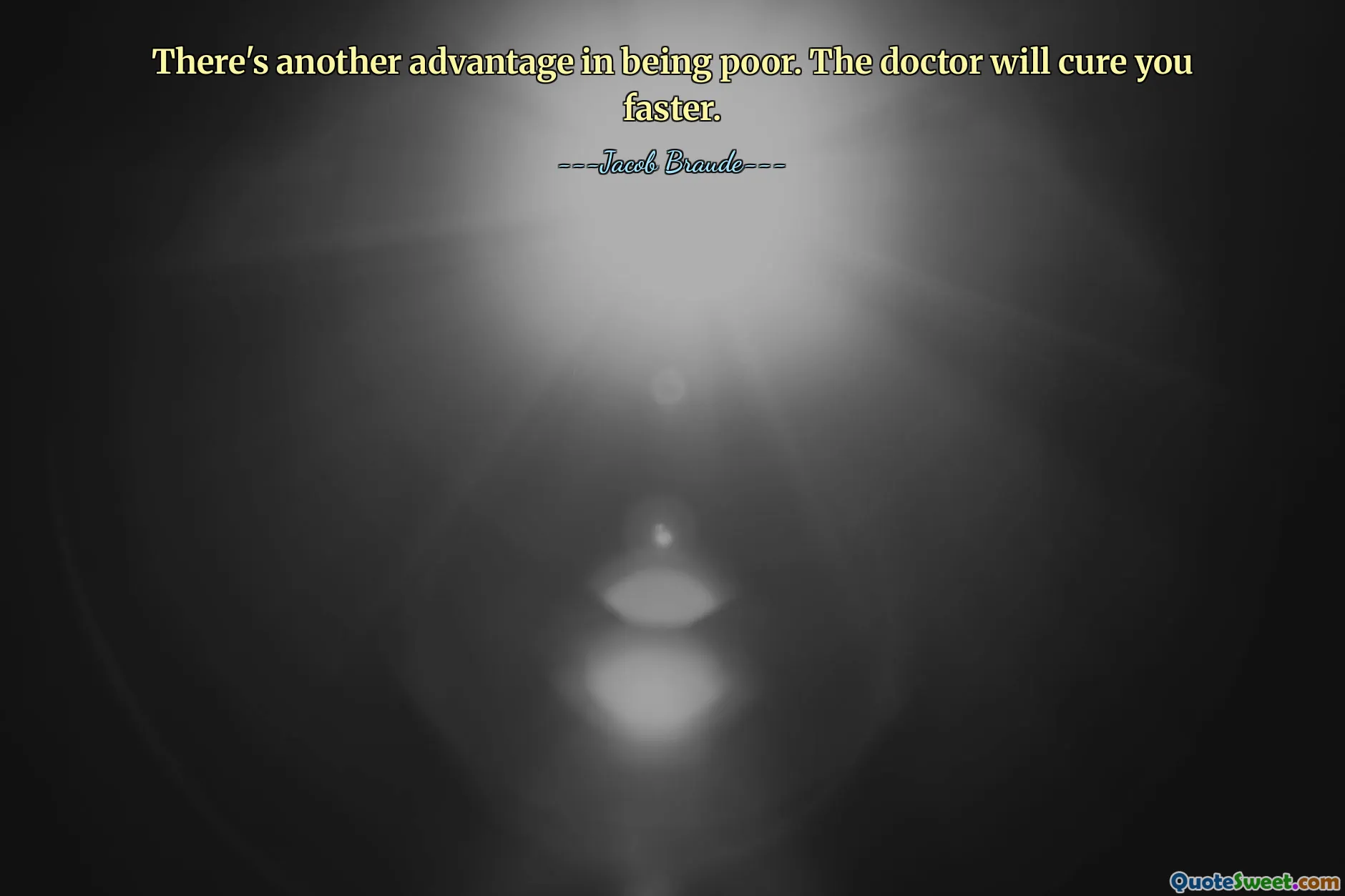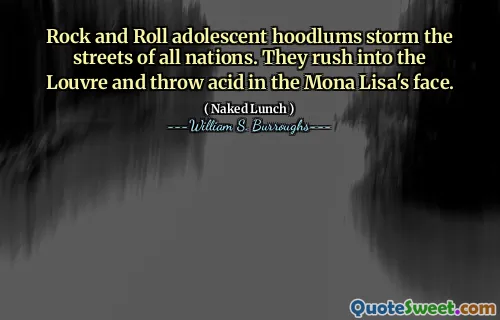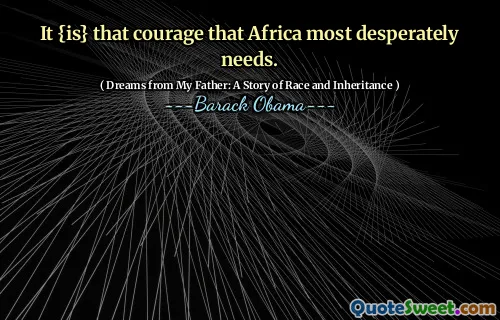
There's another advantage in being poor. The doctor will cure you faster.
This quote highlights the sometimes paradoxical relationship between wealth, health, and healthcare accessibility. It illustrates a reality where financial resources can influence the quality and timeliness of medical treatment. Being poor, in this context, might lead to quicker medical attention simply because there is less to lose or waste from rushing to get help, or perhaps due to more readily available community or subsidized services that prioritize urgent care for those in less fortunate circumstances. Additionally, it subtly points to issues inherent in healthcare systems that are often profit-driven or fragmented, where economic status can determine the speed and quality of care received.
From a broader perspective, the quote also prompts reflection on societal inequities. Wealth often correlates with discernment, options, and sometimes, the ability to navigate complex medical procedures or pay for private care—factors that can delay or improve treatment quality for those with resources. Conversely, poverty can foster a different kind of urgency—necessity forcing prompt medical attention regardless of cost or capacity. Hence, irony emerges as the individual who is impoverished may possibly receive more immediate assistance, not necessarily because of priority, but due to systemic inefficiencies or deeper social patterns.
Moreover, the quote can evoke contemplation on how societal values and structures influence health outcomes. Is the speed of cure a true reflection of health or the result of systemic inequalities? It challenges us to consider how social determinants—such as economic status—impact our health and access to care. Ultimately, it invites discourse on fairness within healthcare systems and encourages us to think critically about reforms needed so that quality medical care transcends socioeconomic boundaries.
---Jacob Braude---










